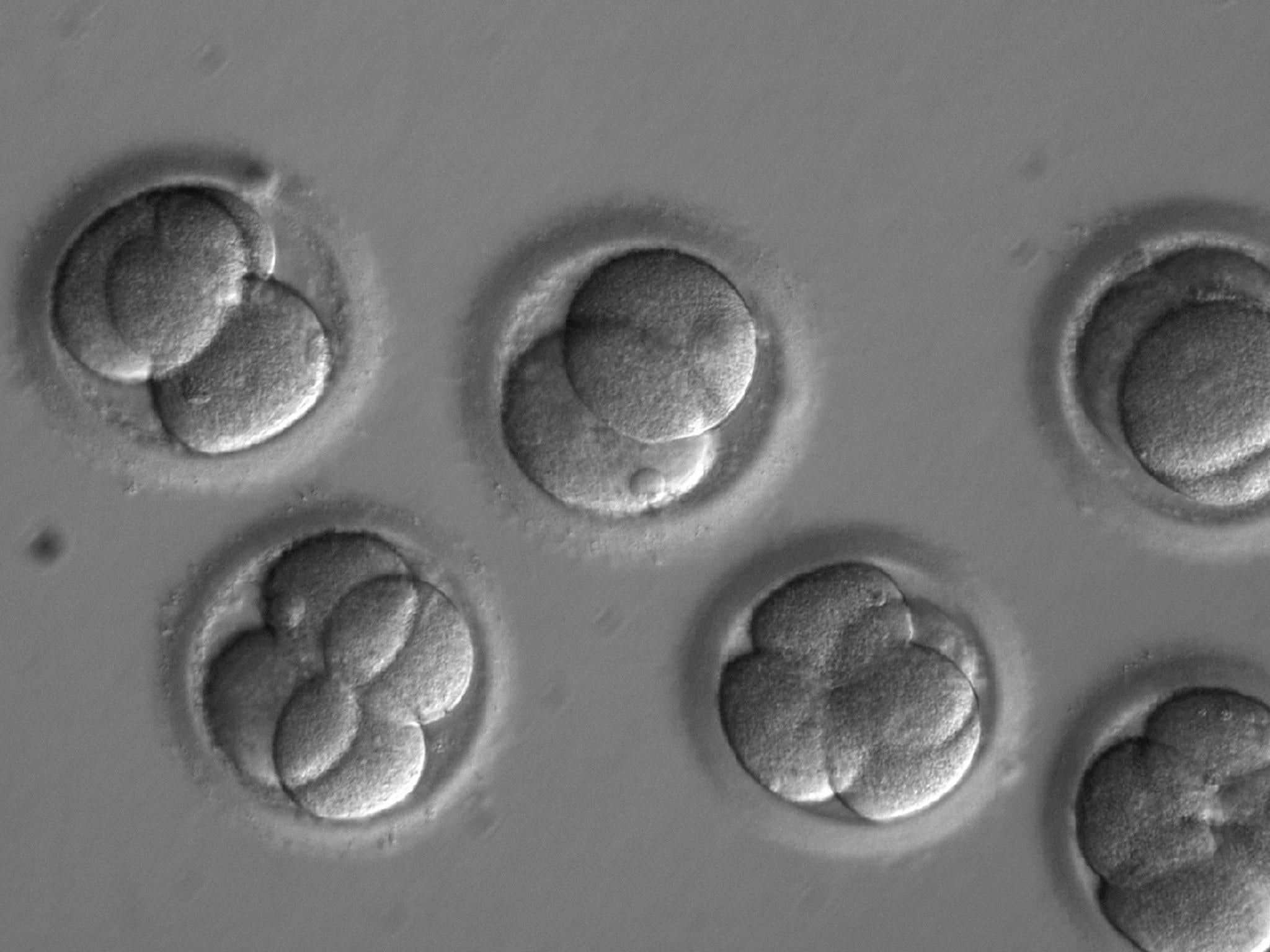Human embryo editing breakthrough is a ‘major advance’ towards controversial treatments for babies
The treatment could help rid babies of genetic diseases. But the ethical and legal considerations need urgent work, experts have warned

A landmark study suggests that scientists could soon edit out genetic mutations to prevent babies being born with diseases. The technique could eventually let doctors remove inherited conditions from embryos before they go on to become a child.
That, in turn, opens the possibility for inherited diseases to be wiped out entirely, according to doctors. But experts have warned that urgent work is needed to answer the ethical and legal questions surrounding the work.
Though the scientists only edited out mutations that could cause diseases, it modified the nuclear DNA that sits right at the heart of the cell, which also influences personal characteristics such as intelligence, height, facial appearance and eye colour.
The breakthrough means that “the possibility of germline genome editing has moved from future fantasy to the world of possibility, and the debate about its use, outside of fears about the safety of the technology, needs to run to catch up”, said Professor Peter Braude from King’s College London. Scientists warned that soon the public could demand such treatment – and that the world might not be ready.
“Families with genetic diseases have a strong drive to find cures,” said Yalda Jamshidi, reader in genomic medicine at St George’s, University of London. “Whilst we are just beginning to understand the complexity of genetic disease, gene-editing will likely become acceptable when its potential benefits, both to individuals and to the broader society, exceeds its risks.”
The new research, published in Nature, marks the first time the powerful Crispr-Cas9 tool has been used to fix mutations. The US study destroyed the embryos after just a few days and the work remains at an experimental stage.
In the study, scientists fertilised donor eggs with sperm that included a gene that causes a type of heart failure. As the eggs were fertilised, they also applied the gene-editing tool, which works like a pair of specific scissors and cuts away the defective parts of the gene.
When those problematic parts are cut away, the cells can repair themselves with the healthy versions and so get rid of the mutation that causes the disease. Some 42 out of 58 embryos were fixed so that they didn’t carry the mutation – stopping a disease that usually has a 50 per cent chance of being passed on.
If those embryos had been allowed to develop into children, then they would no longer have carried the disease. That would stop them from being vulnerable to hypertrophic cardiomyopathy – and would save their children, too.
“Every generation on would carry this repair because we’ve removed the disease-causing gene variant from that family’s lineage,” said Dr Shoukhrat Mitalipov, from Oregon Health and Science University, who led the study.
“By using this technique, it’s possible to reduce the burden of this inheritable disease on the family and eventually the human population.”
The heart problem is just one of more than 10,000 conditions that are caused by an error in the gene. The same tool could be used to cut out those faults for all of those, and eventually could be used to target cancer mutations.
The work could lead to treatments that would be given to patients, once it becomes more efficient and safe. Using such a treatment on humans is illegal in both the US and the UK – but some experts expect that law will soon be changed, and that the legal and ethical frameworks need to catch up with the technology.
There is some suggestion that the editing work could take place in the UK. Though using the research as treatment is illegal there as well as the US, the regulatory barriers are much higher in America and look unlikely to be changed.
In the US, there are various regulations and restrictions on how embryos can be edited, including stipulations that such work can’t be carried out with taxpayers’ money. UK regulators are more relaxed and liberal about those restrictions, leading to suggestions that it could eventually become the home of such work in the west.
The UK has become the first country that allows mitochondrial replacement therapy, another treatment that opponents warn could allow for the creation of designer babies.

“UK researchers can apply for a licence to edit human embryos in research, but offering it as a treatment is currently illegal,” said a spokesperson for the Human Fertilisation and Embryology Authority (HEFA), which would regulate any such experiments.
“Introducing new, controversial techniques is not just about developing the science – gene editing would need to offer new options to couples at risk of having a child with a genetic disease, beyond current treatments like embryo testing.
“Our experience of introducing mitochondrial donation in the UK shows that high-quality public discussion about the ethics of new treatments, expert scientific advice and a robust regulatory system are crucial when considering new treatments of this kind.”
Doctors said that any change in the law would have to strictly keep such treatment to being used for medical reasons, and not for “designer babies” that have other characteristics edited out.
“It may be that some countries never permit germline genome editing because of moral and ethical concerns,” said Professor Joyce Harper from University College London. “If the law in the UK was changed to allow genome editing, it would be highly regulated by the Human Fertilisation and Embryology Authority, as is PGD, to ensure it is only used for medical reasons.”
But that work has already received significant opposition.
Dr David King, director of the Human Genetics Alert, which opposes all tampering with the human genome, said: “If irresponsible scientists are not stopped, the world may soon be presented with a fait accompli of the first GM baby.
“We call on governments and international organisations to wake up and pass an immediate global ban on creating cloned or GM babies, before it is too late.”
Professor Robin Lovell-Badge from the Francis Crick Institute said the research only appears to work when the father is carrying the defective gene, and that it would not work for more sophisticated alterations. “The possibility of producing designer babies, which is unjustified in any case, is now even further away,” he said.
Join our commenting forum
Join thought-provoking conversations, follow other Independent readers and see their replies
Comments